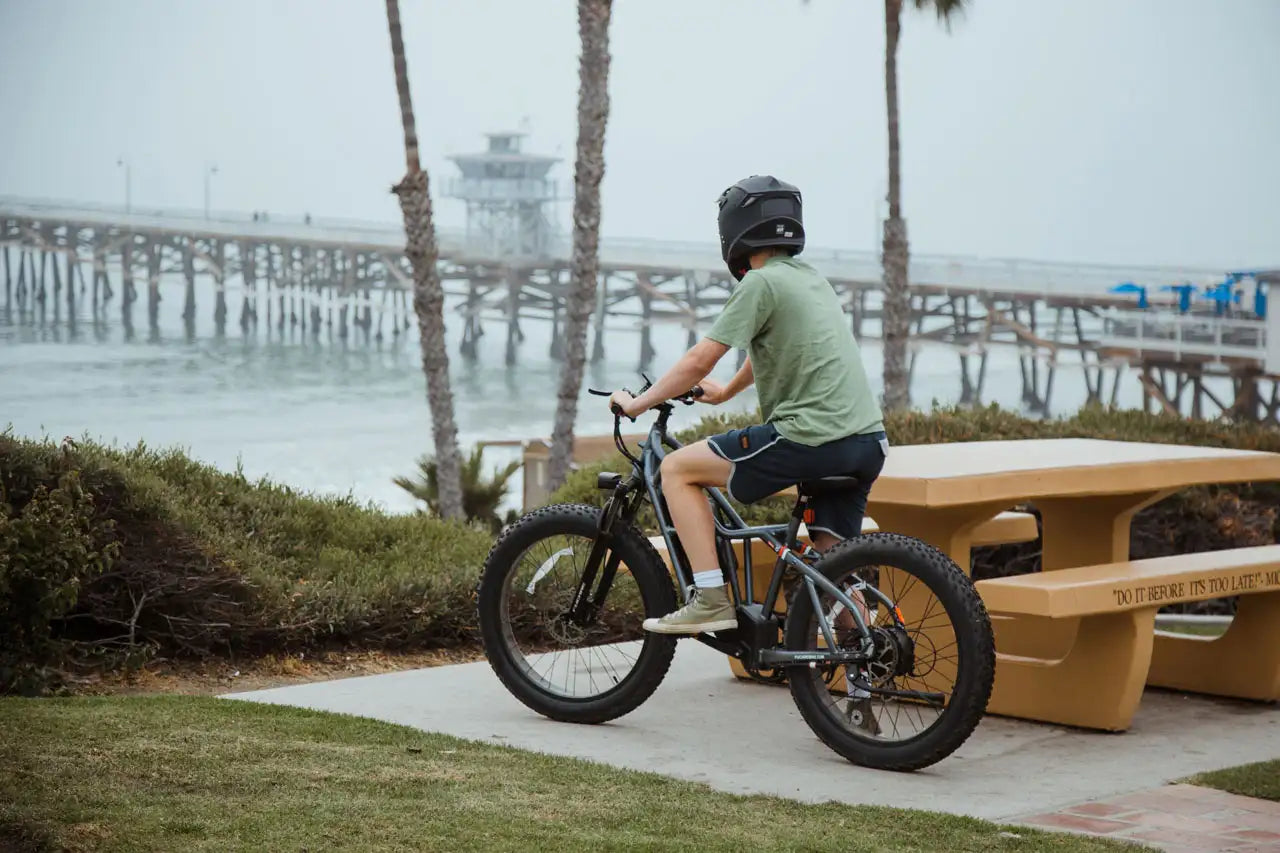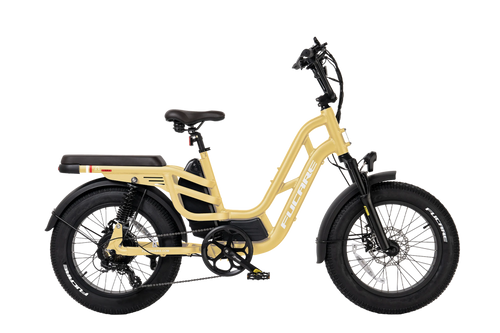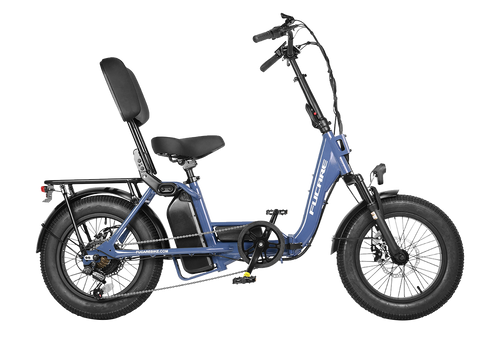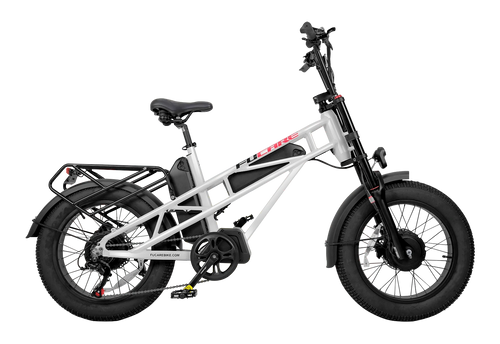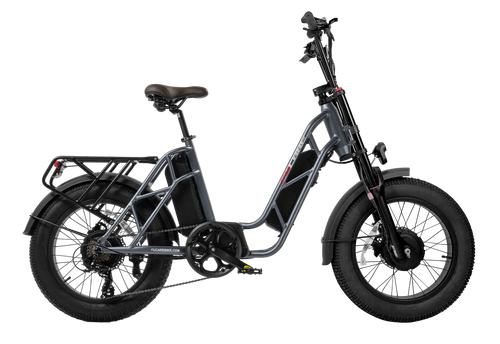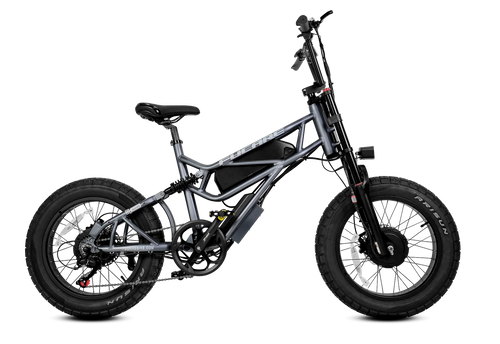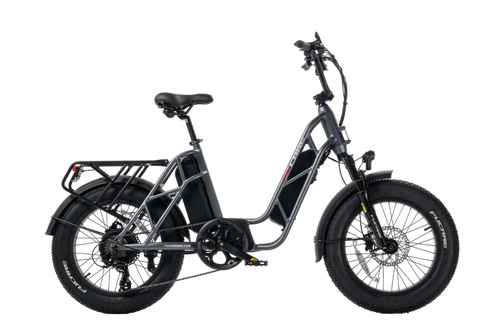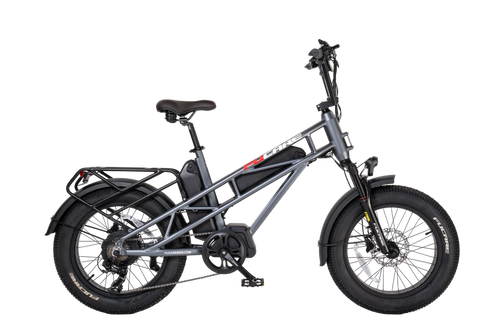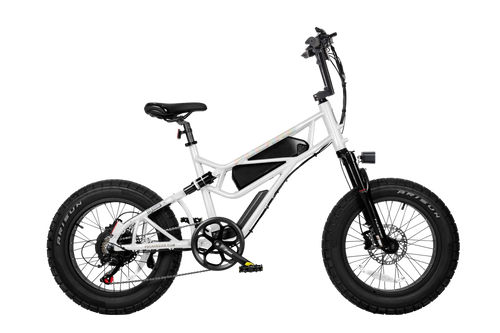Do You Need A License For An Electric Bike
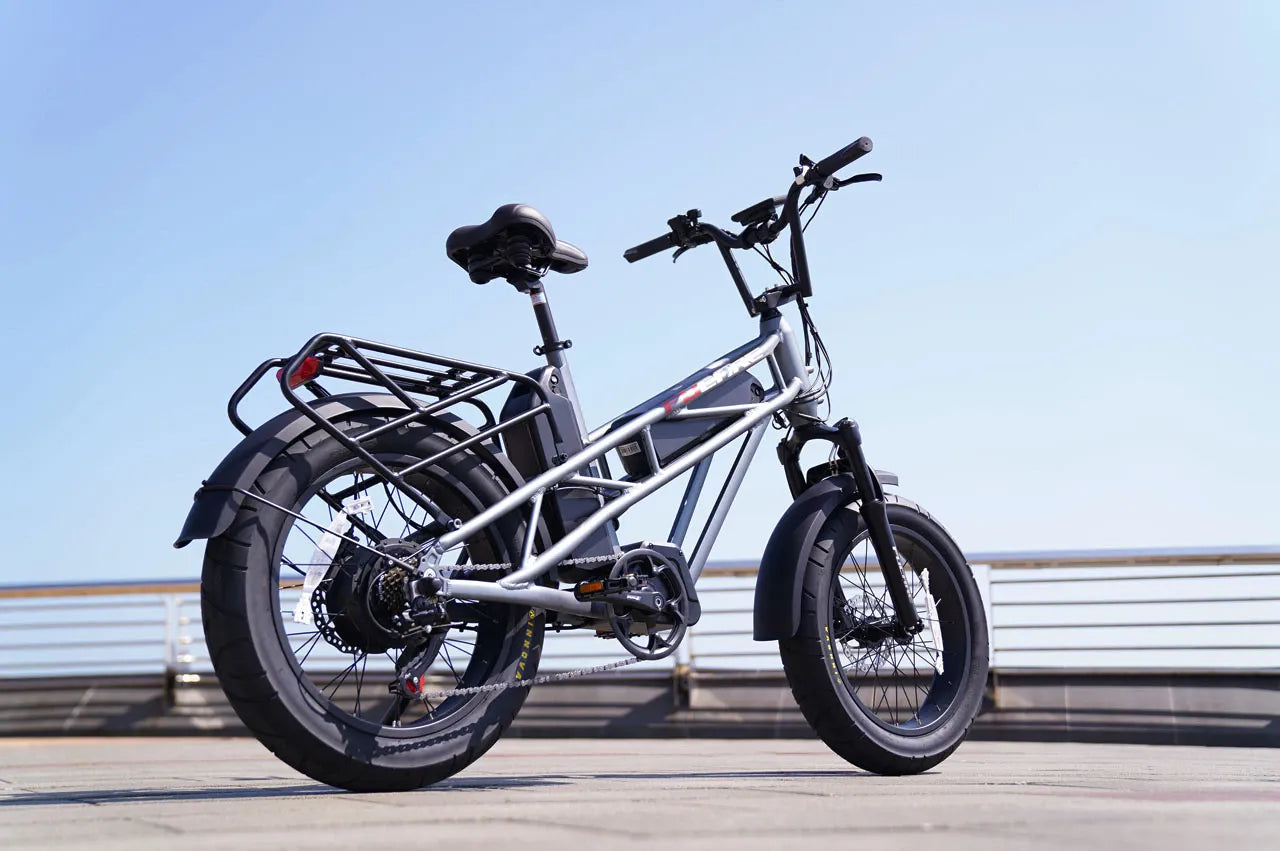
Electric bikes have surged in popularity in recent years. They offer an eco-friendly and convenient way to commute, explore, and get exercise. But with this rise in e-bike use comes a question for new riders: do you need a driver's license to operate one?
E-bike laws across the U.S. are a patchwork, with some states treating them like mopeds and requiring a license, while others consider them fancy bicycles. This article will provide a comprehensive guide to understanding e-bike license requirements across the United States, with a focus on key factors and considerations.
Do eBikes Require a License?

Generally, you don't need a license to operate an electric bike in most places in the United States. Electric bikes are usually regulated more like bicycles than motor vehicles, which means that licensing requirements that apply to cars and motorcycles often do not apply to electric bikes.
States that Define Electric Bikes by Three Classes
Nevertheless, rules can differ from one state to another and across different local areas. In states that adopt the three-tier classification system for electric bikes, there's generally no need for registration, licensing, or insurance for these vehicles.
As of April 2024, 39 states use the industry-defined three-class system.
Industry-defined Three Classes of Electric Bikes:
Class 1: Bicycle equipped with a motor that provides assistance only when the rider is pedaling, ceasing to assist when the electric bicycle reaches 20 mph.
Class 2: Bicycle equipped with a throttle-actuated motor, that ceases to assist when the electric bicycle reaches 20 mph.
Class 3: Bicycle equipped with a motor that provides assistance only when the rider is pedaling, ceasing to assist when the electric bicycle reaches 28 mph.
When you own an electric bicycle, it's crucial to understand how the law categorizes and defines this type of vehicle, placing it into one of the designated categories.
States That Use Different Classifications
Although New York and New Jersey also use classification, they have different regulations.
New York
New York's electric bike regulations differ slightly from the standard classifications used by most other states.
In New York, electric bicycles are categorized into three classes:
Class 1: This type includes bicycles with motors that assist only while the rider is pedaling and stop assisting once the bicycle reaches 20 mph.
Class 2: These bicycles are equipped with a throttle-activated motor that also stops assisting at 20 mph.
Class 3: Available only in cities with a population of over one million, these bicycles offer throttle assistance up to 25 mph and do not provide assistance beyond that speed.
Contrary to the commonly recognized Class 3 electric bicycles in the industry (defined as bicycles with motors that assist while the rider pedals and cease assistance at 28 mph), such specifications are neither recognized nor allowed in New York.
New Jersey
In New Jersey, low-speed electric bicycles are categorized into two classes: Class 1 and Class 2 e-bikes.
Both Class 1 and Class 2 e-bikes are exempt from the registration, licensing, or insurance mandates that govern motor vehicles.
Class 3 e-bikes are classified as motorized bicycles. Operators of motorized bicycles are required to have a valid driver's license, wear helmets regardless of age, and meet registration and insurance obligations.
States Do Not Use The Three-class System
| State | Ebike Definition |
| Rhode Island | Classified as "electric motorized bicycles" with a power output no greater than 1,491 watts, a maximum speed of 25 mph, and fully operable pedals. |
| Hawaii | Defined as a "low-speed electric bicycle" with a motor-assisted maximum speed of less than 20 mph on a paved level surface. |
| Kentucky | Classified as "bicycles," provided they have operable pedals and can be powered by both human and motor power. |
| Montana | Classified as "electrically assisted bicycle" as long as it does not exceed a maximum speed of 20 mph. |
| North Carolina | Treated like human-powered bicycles, with motor power under 750 watts, a maximum speed of 20 mph, and operable pedals. No registration, licensing, or insurance is required. |
| Oregon | Classified as "electric assisted bicycles," regulated like bicycles, with a motor power of up to 1,000 watts, operable pedals, and a maximum speed of 20 mph. |
| Pennsylvania | Considered a "pedalcycle with electric assist" if it has a motor under 750 watts, reaches a maximum speed of 20 mph, weighs no more than 100 lbs, and has operable pedals. |
| South Carolina | Equipped with motors of less than 750 watts and exempt from the definition of "moped." |
| D.C. | Defined as a "motorized bicycle" as long as it has operable pedals, can be operated under combined human and motor power, and has a maximum speed of 20 mph. |
States that Require a License
Alaska
In Alaska, an electric bicycle is classified as a "motor-driven cycle." Unlike traditional bicycles, motor-driven cycles, including electric bicycles, follow different road rules.
Riders of electric bicycles in Alaska must carry a valid driver's license. However, electric bicycles are exempt from registration and insurance requirements.
Hawaii
To operate an e-bike in Hawaii, you must pay a $30 registration fee. You can register at any city hall satellite location or at the state business registration unit in Honolulu. Only individuals aged 18 and older are eligible to register their e-bikes. Those aged 15 and older may operate an e-bike but only if it is registered to someone in their household.
Are There Any Age Restrictions For Riding Electric Bikes In the US?

Within the United States, the usage of electric bikes is not governed by a uniform federal age limit, with such mandates instead established on a state-by-state basis. There's no one-size-fits-all answer when it comes to age restrictions.
On the one hand, some states take a relaxed approach. In Arizona, Delaware, Florida, and Kentucky, for example, you can hop on an electric bike regardless of your age. However, Delaware enforces a helmet requirement for all riders and passengers under 18. More restrictive states like Alaska and Tennessee prohibit minors under the age of 14 from operating electric bikes, whereas North Carolina and Pennsylvania have established 16 as the minimum age for e-bike usage.
On the other hand, some states impose stricter age limits, particularly for Class 3 electric bikes – the speedier ones with more powerful motors. In Arkansas, California, Colorado, and Connecticut (where everyone must wear a helmet, regardless of age), for example, you need to be at least 16 years old to ride a Class 3 e-bike. This age requirement dips to 15 in Georgia and Indiana.
Hawaii has a unique system: while you need to be 18 to register an electric bike, those as young as 15 can ride one as long as it's registered by an adult in their household.
No matter where you live, it's crucial to stay up-to-date on your local electric bike regulations. These local rules will provide the most current and relevant information about what's allowed in your area, keeping you safe and avoiding any unwanted run-ins with the law.
Additional Considerations for E-Bike Riders

Obtaining a license might not be a hurdle for most e-bike riders, but safety should always be a top priority. Here are some essential tips for e-bike riders:
Get trained
Embarking on the journey of using an electric bike involves not only embracing a new mode of transport but also ensuring you're equipped with the necessary skills and knowledge for safe riding. One highly recommended step for beginners is enrolling in a cycling safety course. Such a course offers comprehensive training in handling techniques tailored specifically for e-bikes, along with strategies for effectively navigating through traffic.
Maintain your e-bike
To keep your electric bike performing at its best, routine maintenance is crucial. It's important to regularly check the condition of vital components such as the brakes, tires, and electrical systems. Ensuring these parts are in top shape can significantly enhance your bike's reliability and safety while you're on the road.
Be visible
Visibility is another critical aspect of safe e-bike riding, especially under low-light conditions. Employing both a headlight and a taillight will make you more noticeable to other road users after dark. Additionally, wearing clothing with reflective materials can substantially increase your visibility, further ensuring that motorists can see you clearly.
Ride defensively
Adopting a defensive riding posture is essential when navigating shared roadways. It's wise to assume that you may not be visible to other drivers or pedestrians. Keeping a prudent distance from both vehicles and on-foot traffic, while staying alert to your surroundings, prepares you to respond swiftly and safely to any unforeseen events.
Obey the rules of the road
Finally, adherence to traffic regulations plays a fundamental role in promoting safety. Always come to a complete stop at stop signs and red lights, yield the right of way to pedestrians, and clearly signal your intentions to turn using appropriate hand signals. By riding responsibly, you contribute to a safer environment for yourself and others sharing the road.
Conclusion
Electric bikes offer a fun, eco-friendly, and convenient way to travel. By understanding the licensing requirements, safety regulations, and responsible riding practices in your area, you can ensure a smooth and enjoyable e-bike experience. So, get out there, explore your surroundings, and enjoy the ride!
Continue reading
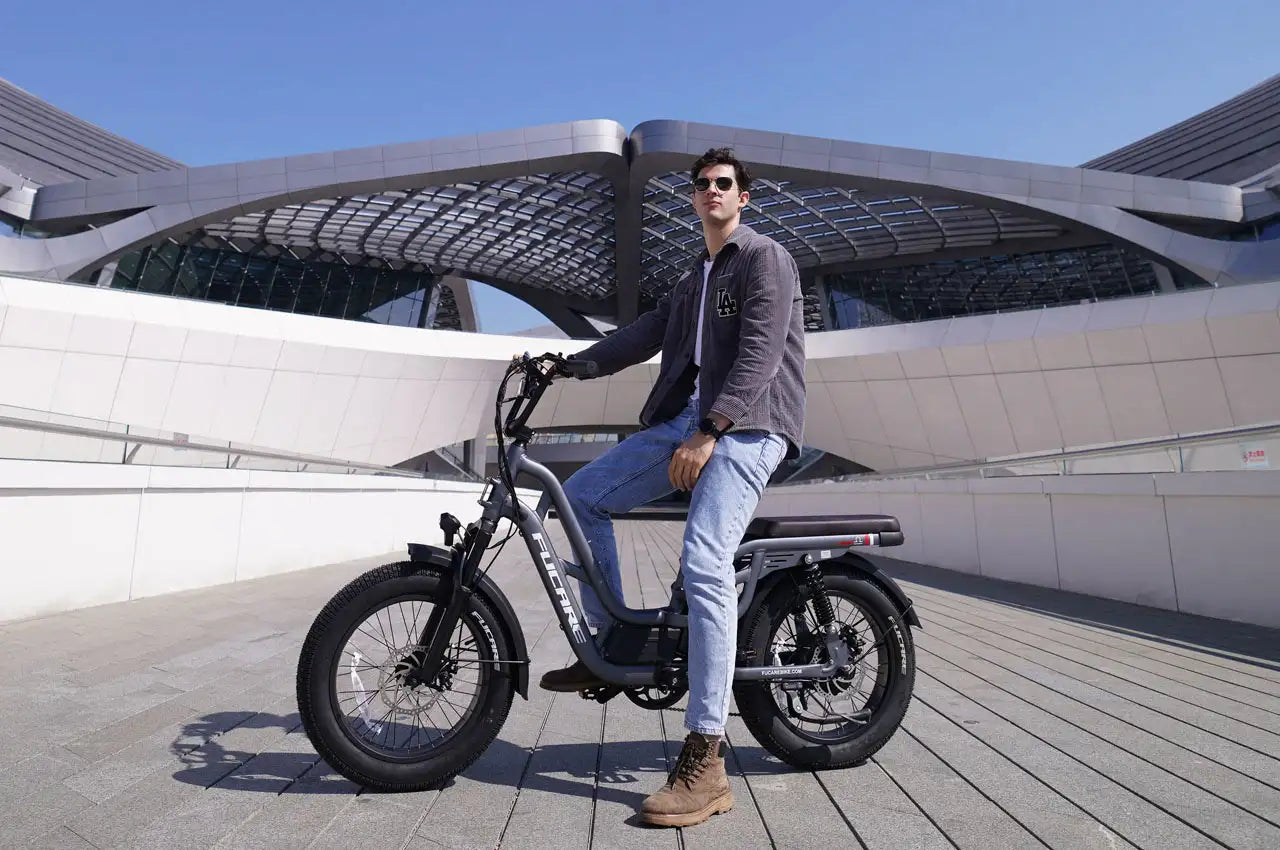
How Does Biden’s New Tariff on Chinese Products Affect Ebikes?
